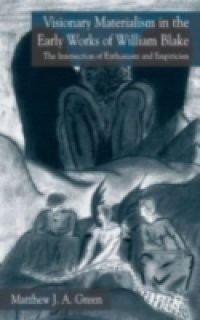Blake's response to the Enlightenment and relation to alternative religious traditions have long been topics of fervent scholarly debate, though they are rarely considered together. Drawing on the most recent discoveries concerning Blake's family heritage and cultural context, this study re-evaluates Blake's response to the Enlightenment to propose a radical new reading of his early works. Whereas traditionally Blake has been thought to reject empiricism and materialism outright, this book argues instead that his hostility towards enlightenment philosophy stems from a sense that it does not go far enough. Through a careful analysis of key figures from both sides of the enlightenment/counter-enlightenment divide (including Boehme, Swedenborg, the Moravians, Lavater, Brothers, Erasmus Darwin, Priestley and Locke), and a consideration of Derrida's recent work on friendship and religion, the discussion traces an alternative tradition of spiritual vision that challenges many preconceived assumptions about Blake's religious and philosophical inheritance. This visionary materialism provides a new way of thinking not only about Blake, but also about key aspects of society today.

